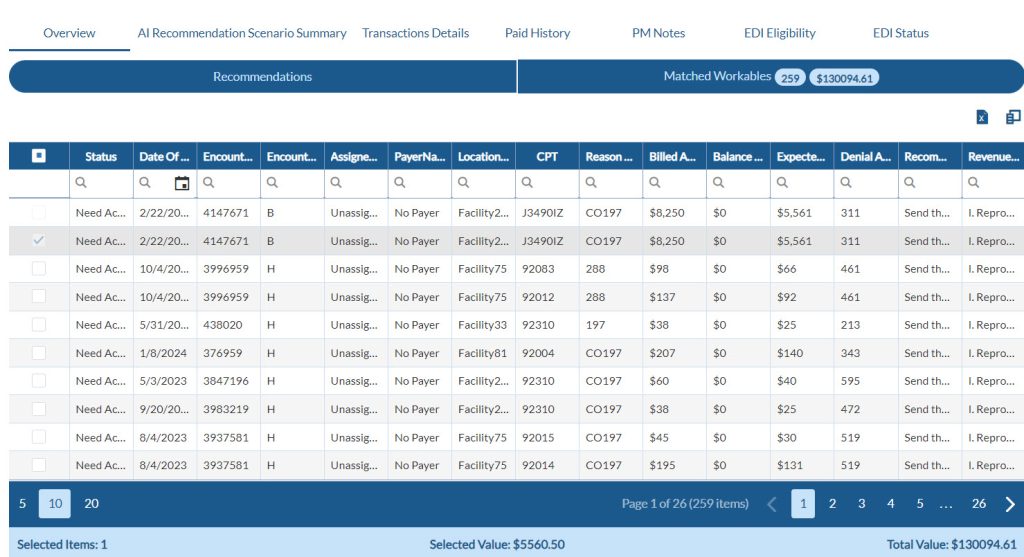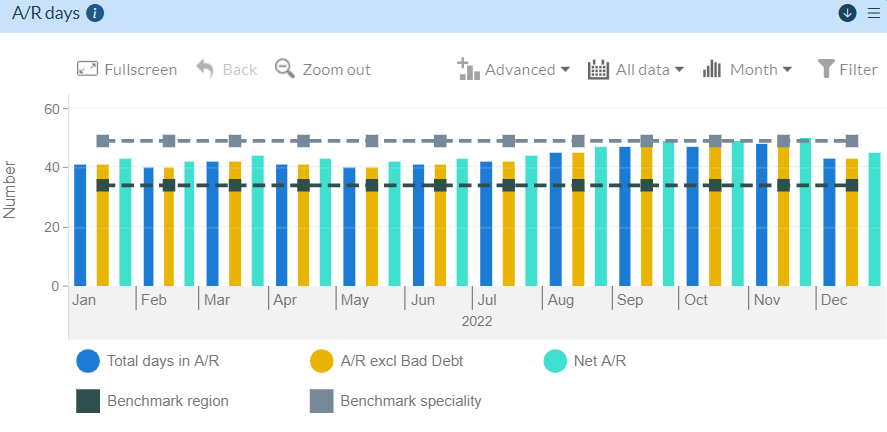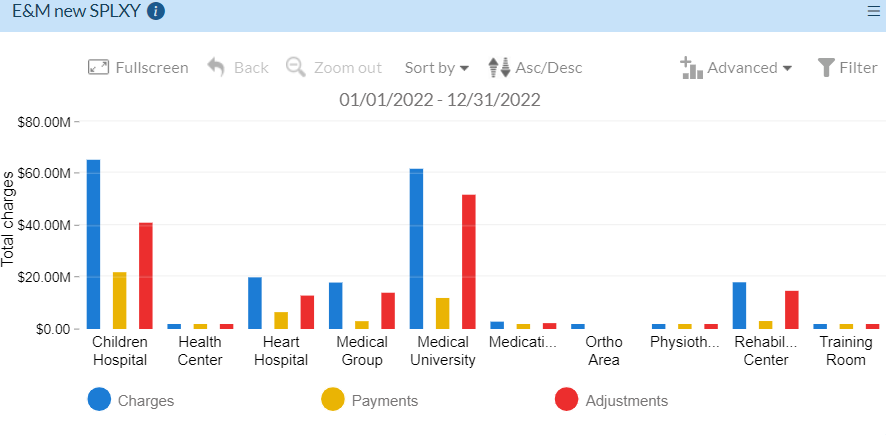
by Carrie Bauman
Healthcare leaders face the challenge of navigating an intricate web of processes and data within the revenue cycle. Managing these processes effectively is pivotal for maintaining financial stability and operational efficiency. To this end, setting up alerts for key Revenue Cycle Management (RCM) metrics is an indispensable step toward revenue cycle optimization. This guide will show you how to implement practical alert systems and leverage the WhiteSpace Health platform to streamline this process.
The revenue cycle encompasses multiple phases and stakeholders, from scheduling appointments to managing claims and payments. Tracking key RCM metrics allows you to pinpoint inefficiencies and areas for improvement before they spiral into major issues. Here are some key reasons why RCM alerts are crucial:
Alerts provide real-time notifications when metrics deviate from established benchmarks. Whether it’s an uptick in denials or a drop in collections, early warnings enable timely corrective action.

Monitoring revenue performance metrics ensures consistent cash flow by addressing bottlenecks that hinder revenue realization.
Alerts keep you informed about the health of your workstreams, allowing you to make data-driven decisions that foster revenue cycle optimization.
Timely alerts help prioritize tasks, ensuring your team focuses on the most critical areas.
Without an AI-driven platform to track and alert you to fluctuations in RCM benchmarking metrics, it’s easy for gaps to grow unnoticed, jeopardizing your organization’s financial health.
The WhiteSpace Health platform leverages AI in revenue cycle management to offer seamless tracking and alerting capabilities. Its Revenue Cycle module is designed to simplify the complexities of healthcare revenue analytics, enabling leaders like you to stay ahead of potential issues.
Define thresholds for healthcare revenue KPIs, such as denial rates, A/R days, and cash collections. The platform automatically sends alerts when these thresholds are breached.
By analyzing patterns in your data, the platform identifies potential risks and suggests corrective actions before they escalate.
Forget manually extracting and analyzing data. WhiteSpace Health automates these processes, saving you hours each week and ensuring fresh insights are always at your fingertips.
The platform pinpoints root causes of performance trends and highlights actionable areas to improve your revenue performance metrics.
With intuitive dashboards and role-based security, each member of your team can access tailored insights without a steep learning curve.
By utilizing the WhiteSpace Health platform, you’ll gain unprecedented visibility into your revenue cycle and the ability to take immediate action based on data-driven alerts.
Setting up alerts for the right metrics is crucial to maximizing the platform’s effectiveness. Below are some of the most impactful healthcare revenue KPIs to monitor:
A high clean claims rate ensures faster payments and reduces rework. Receive alerts when the rate drops below 90%, indicating potential issues with claim submissions.
High denial rates lead to delayed payments and increased administrative costs. Get notified when denial rates exceed 5%, allowing you to address the root causes promptly.
This metric reflects the time it takes to collect payments. Prolonged A/R days can strain cash flow. Set alerts for A/R days exceeding 30 to ensure timely follow-ups on outstanding payments.

This measures how effectively you’re collecting revenue against net patient service revenue. Alert Thresholds: Monitor for dips below 95%, signaling inefficiencies in your revenue collection process.
As patient responsibility grows, tracking these payments becomes vital to maintaining cash flow. Trigger alerts when collections fall below a defined percentage of expected revenue.
High write-offs indicate revenue leakage and inefficiencies in billing practices. Receive alerts when write-offs surpass 3% of gross charges.
By configuring these alerts, you’ll ensure your organization maintains optimal performance across critical revenue cycle metrics.
Start by determining which metrics align with your organization’s goals. Focus on those that directly impact revenue cycle optimization.
Use RCM benchmarking metrics to establish realistic thresholds for alerts. Historical data and industry standards show how you compare.
Use the WhiteSpace Health platform’s intuitive interface to set up alerts for each KPI. Customize notifications based on roles to ensure the right stakeholders receive them.
New codes are added, policies are clarified, and payer guidelines are constantly evolving too. Since technology and all stakeholders in the revenue cycle ecosystem are constantly evolving, your KPIs need to be revisited on a regular basis to ensure their relevance and importance.

Take advantage of the platform’s AI-driven recommendations to address issues flagged by alerts quickly and effectively.
Setting up alerts for key RCM metrics is not just a best practice, it is now an essential strategy for healthcare leaders aiming to achieve revenue cycle optimization. With the WhiteSpace Health platform, you can automate the tracking of critical metrics, receive timely notifications, and act decisively to maintain financial health and operational excellence.
As these strategies are implemented, remember that success lies in proactive management and leveraging advanced tools like AI in revenue cycle management. By monitoring metrics such as clean claims rates, denial rates, and patient responsibility collections, you will transform your revenue cycle into a streamlined, efficient system that supports your organization’s long-term goals.


2424 North Federal Highway, Suite 205
Boca Raton, FL 33431